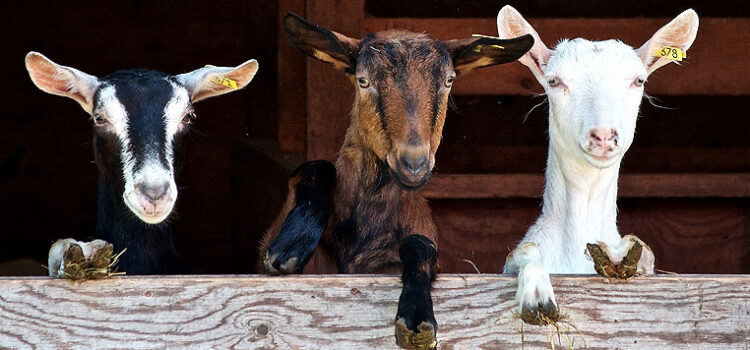
The very first line of defence in keeping your goats healthy is by preventing goat diseases. You must also know about these diseases when you’re about to buy goats. In this way, you can avoid buying diseased goats. Make sure you’re buying the CL-free and CAE-free goats. It’s absolutely necessary that you inspect the records before buying them.
The other diseases can be known by inspecting the herd and looking out for signs and symptoms. You can also approach a farm veterinarian to make sure that the goats are checked for diseases. Once the diseases are identified, you’ll need to get medications and treatment for your goats from the vet. You can stock the medicine cabinet with certain medications such as antibiotic ointments for pink eye.
This helps you in having the medications ready as soon as you notice any symptoms. It is best to have a farm medicine cabinet, where all these medications can be kept. You must separate the sick goat from the herd if it has a contagious disease. Consult the vet if you need to have any of your doubts clarified. Here are some of the common goat diseases:
1. Caprine Arthritis Encephalitis (CAE)
This is a contagious and incurable disease, which is devastating for your goat herd. It’s quite similar to HIV in humans. This disease compromises the immune system of a goat and this is why you must buy CAE-free goats. A test for CAE would help in identifying whether the goat has been infected with this virus.
2. Caseous Lymphadenitis (CL)
This is a contagious and chronic disease, also known as ‘abscesses’. Goats infected with this disease have pus-filled infections or abscesses formed around their lymph nodes. With the bursting of the abscesses, other goats can be infected by the pus. As the test for CL is not often accurate, you must buy goats that are free from the disease.
3. Coccidiosis
The young ones affected by this parasite can suffer from diarrhoea, rough coats, and general ill-health. Sometimes, the diarrhoea can be bloody. Albon is used to treat the affected goats. You can also feed them a coccidiostat as a preventative.
4. Pink eye
Just like humans, goats can get pink eye. The rules for taking care of the affected goats is the same as in humans. Keep the sick ones away from the rest of the goats in the herd. Make sure you wash your hands well after handling the goat with pink eye. You can get the goat treated by taking it to the vet.
5. Enterotoxemia
This condition is caused due to bacterial imbalance in the rumen of the goat. It can result from overfeeding, sudden changes in feed, sickness, or digestive problems. Enterotoxemia can be fatal for the goat. So, make sure that you vaccinate your goat herd against enterotoxemia. It’s always good to have CD antitoxin handy for emergencies.
6. G-6-S
This is a genetic defect, which is seen in Nubian goats and Nubian crosses. Young ones among goats with this defect usually die early. Only some of the breeders have their goats tested for this and sell them as ‘G-6-S Normal’.

